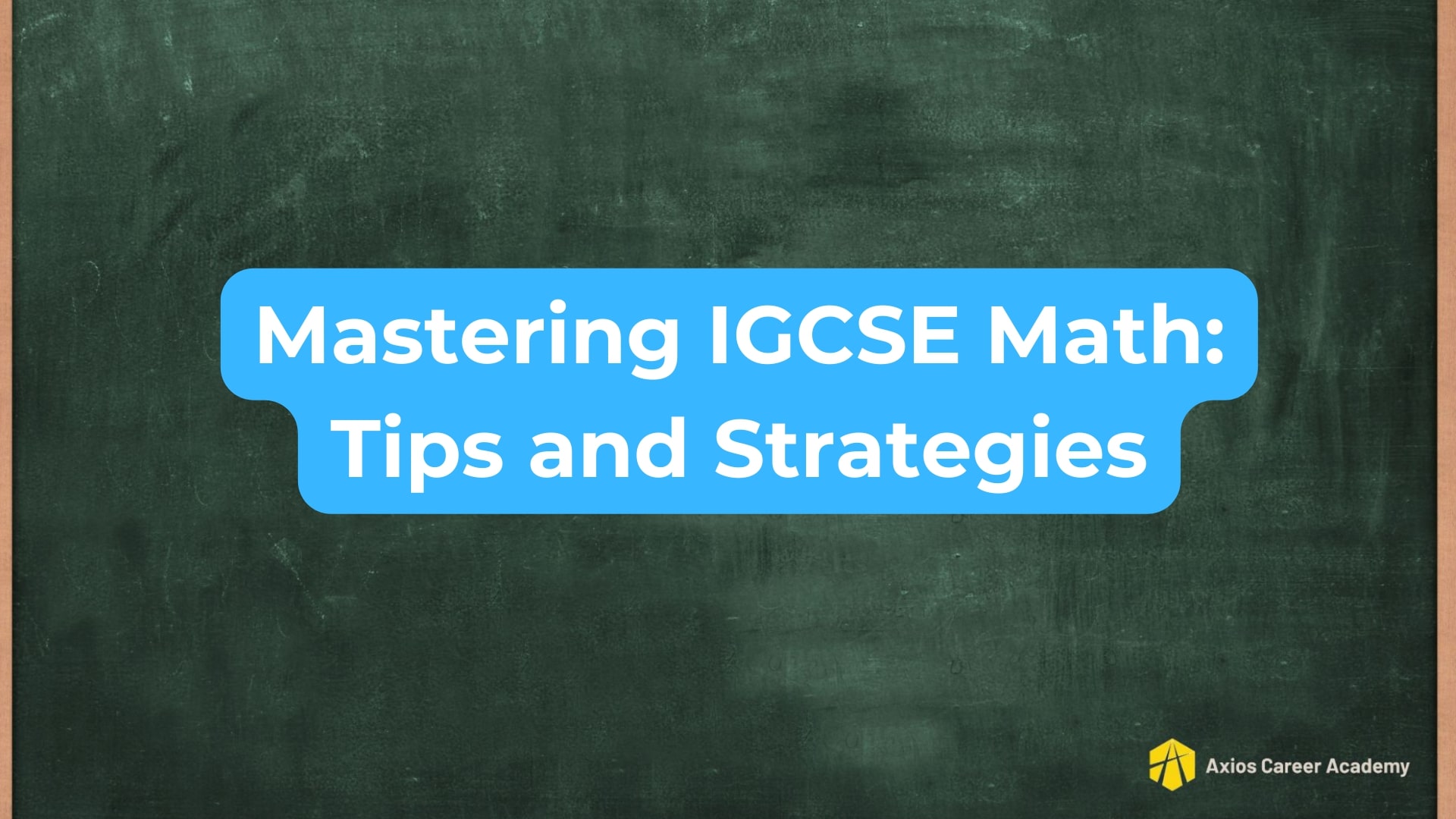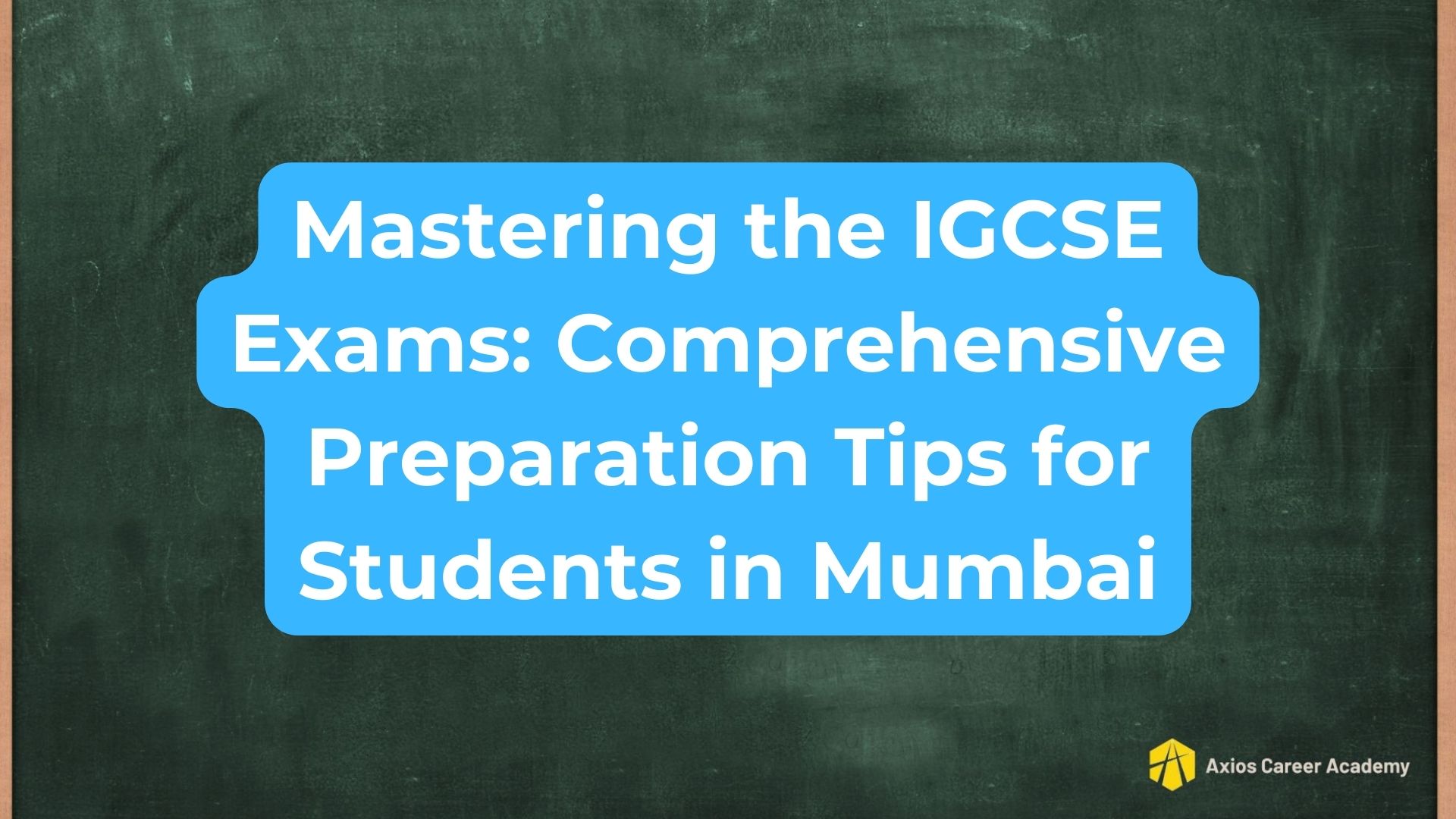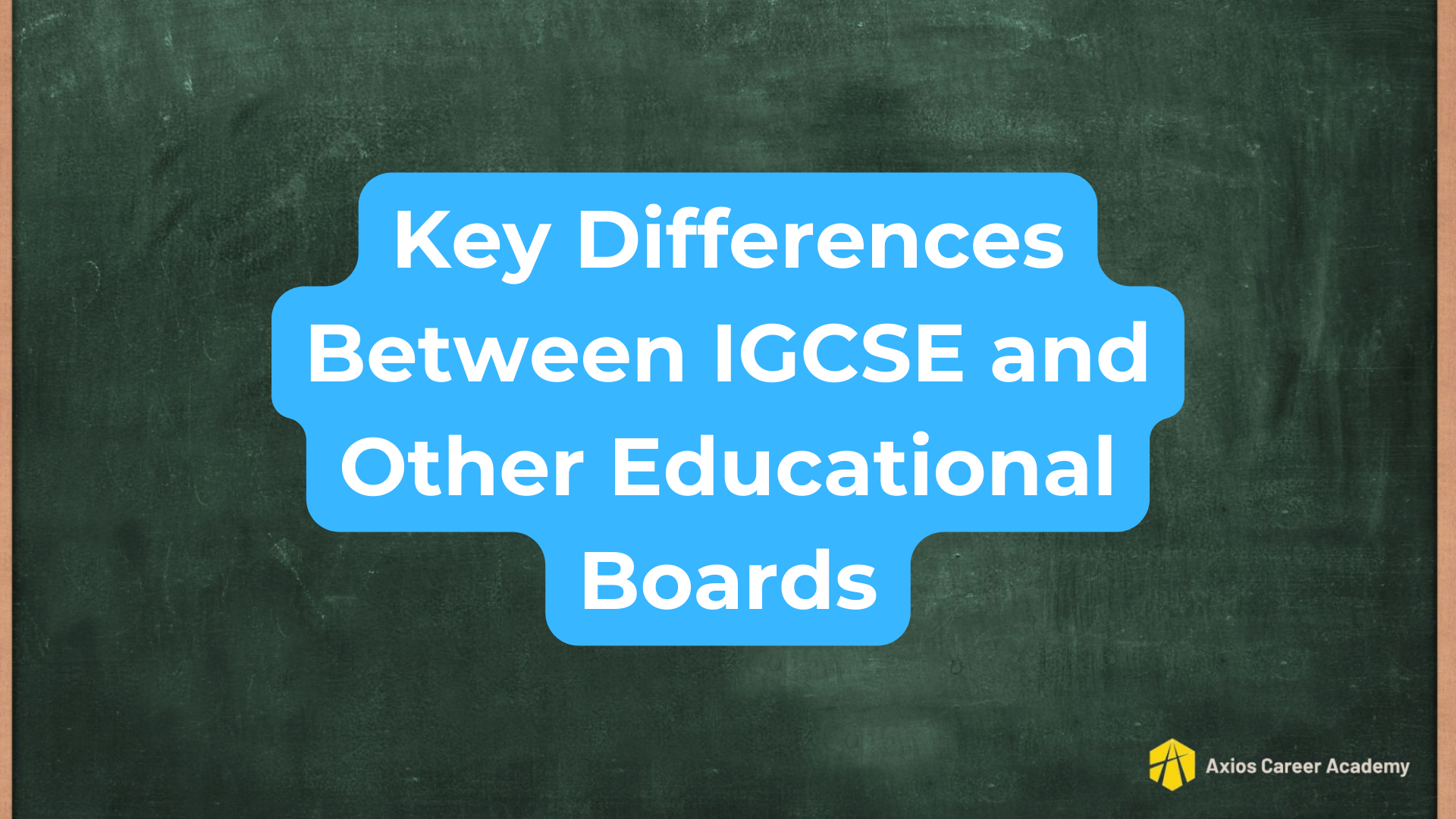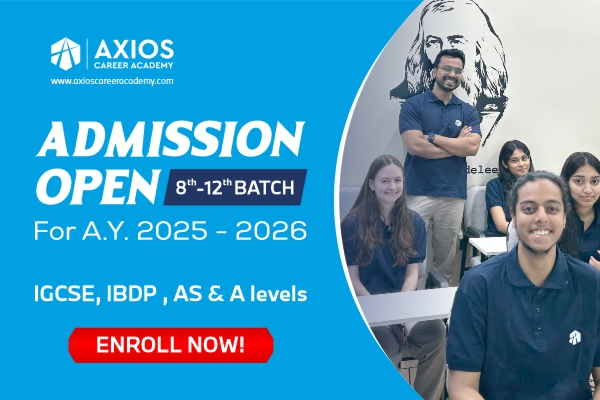Mastering: Essential Tips and Strategies

Mastering: Essential Tips and Strategies
Introduction
Welcome, students! If you're gearing up for the IGCSE Math exams, you know it's not just about crunching numbers; it’s about understanding concepts and applying them effectively. This exam can open a lot of doors for your future, whether in further education or career opportunities.
That's why we've put together this blog—to share some smart strategies and practical tips to help you ace your IGCSE Math with confidence.
Section 1: Understanding the IGCSE Math Syllabus
The IGCSE Math syllabus might look daunting at first, but with a bit of navigating, you'll get the hang of it. Let’s break it down:
Overview of Syllabus Contents:
The syllabus covers a variety of topics from basic arithmetic to more complex algebra and geometry. You’ll encounter everything from simple calculations and equations to graphs and statistical data.
Core vs. Extended Papers:
Depending on your confidence and proficiency, you can choose between two types of papers:
-
Core: This is for you if you find math a bit challenging. It covers the basic concepts and ensures you have a solid foundation.
-
Extended: If math is your strong suit and you enjoy challenges, this option dives deeper into more complex problems and advanced topics.
Understanding Exam Formats and Question Types:
It’s crucial to familiarize yourself with the type of questions asked in the exam. There are usually problem-solving questions, multiple-choice questions, and theoretical questions that test your understanding of concepts.
Example:
Imagine you’re working on a problem about the probability of picking a red ball from a bag containing different-colored balls. A typical question could ask you to calculate the probability or might extend to asking what happens if another red ball is added to the bag.
Tips:
-
Syllabus Guide: Always keep the latest syllabus guide handy. It’s your roadmap to what’s expected in the exams.
-
Past Papers: Dive into past exam papers to get a feel of the question formats and time yourself while attempting these to gauge your speed and accuracy.
These initial insights into the IGCSE Math syllabus should give you a clearer idea of what to expect and how to prepare. Remember, understanding your syllabus is like knowing the pitch you’re playing on—it helps you play your best game! Stay tuned for more sections where we’ll discuss effective study techniques, how to manage your study time, and the best resources to help you prepare. Good luck, and let’s make math fun and rewarding!
Section 2: Fundamental Concepts to Master
Mastering IGCSE Math requires a good grip on several key topics: algebra, geometry,
trigonometry, and statistics. Let’s explore each one and discuss how to approach them
effectively.
Algebra:
Algebra is all about finding unknowns using equations. It forms the backbone of most mathematical problems you'll encounter.
-
How to Approach: Start by understanding simple equations and gradually move to more complex ones. Always keep your equations balanced—what you do on one side, do on the other!
-
Common Pitfalls: Mixing up the rules for addition and multiplication when dealing with variables (like x and y). Remember, when you multiply variables, their powers add up;
when you add them, they stay the same.
Example: If
2x+3=13
2x+3=13, first subtract 3 from both sides to get
2x=10
2x=10, then divide by 2 to find
x=5.
Geometry:
Geometry is about shapes and their properties. You’ll deal with different figures, angles, and how to calculate areas and perimeters.
-
How to Approach: Get familiar with formulas for calculating area, perimeter, and volume. Practice drawing figures accurately.
-
Common Pitfalls: Not labeling diagrams or mixing up different geometric formulas. It’s crucial to understand which formula applies to which shape.
Example: To find the area of a triangle with a base of 5 cm and a height of 3 cm, use the formula
Area=(1/2)×base×height
Area= (1/2)×base×height, which gives you
(1/2)×5×3=7.5 cm2
.
Trigonometry:
This branch deals with the relationships between the angles and sides of triangles. It’s very
useful, especially in physics.
-
How to Approach: Learn the sine, cosine, and tangent functions. Understand how to use the SOHCAHTOA mnemonic—Sine equals Opposite over Hypotenuse, Cosine equals Adjacent over Hypotenuse, and Tangent equals Opposite over Adjacent.
-
Common Pitfalls: Forgetting to switch your calculator between degrees and radians or using the wrong trigonometric ratio.
Example: If you have a right triangle with an angle of 30 degrees and an adjacent side of 4 cm, to find the hypotenuse, use the cosine function:
Hypotenuse=Adjacentcos(30∘)=40.866≈4.62 cm
Statistics:
Statistics involves collecting, analyzing, and presenting data. It helps in making decisions based on data patterns.
-
How to Approach: Start by understanding how to calculate mean, median, mode, and range. Learn about probability and how it’s used to predict outcomes.
-
Common Pitfalls: Ignoring the differences between types of data (like discrete vs continuous) or using the wrong measures of central tendency.
Example: If your data set is 3, 5, 7, 8, and 10, the mean (average) is
(3+5+7+8+10)5=6.6
Understanding these foundational topics in IGCSE Math and practicing them regularly will
definitely set you up for success. Remember, math is not just about memorizing formulas—it’s
about understanding how to use them in different situations. Stay tuned for more strategies on
effective studying in our next section!
Section 3: Effective Study Techniques
Achieving success in IGCSE Math isn't just about hard work; it's about studying smart. Let's delve into some effective study techniques that can help you make the most of your study sessions.
Spaced Repetition:
This technique involves reviewing the material over increasing intervals of time. It helps in moving information from short-term memory to long-term memory, which is crucial for retaining mathematical concepts.
-
How to Implement: After you learn a new topic, review it the next day, then a few days later, and then weekly. For example, if you study trigonometry on Monday, revisit it on Tuesday, then on Friday, and again the following week.
Active Recall:
Active recall is testing yourself on the material you need to learn, rather than just re-reading it. This forces your brain to retrieve the information and strengthens your memory and understanding.
-
How to Implement: Use flashcards or create your own practice questions. After studying a topic like algebra, write down everything you remember without looking at your notes. Then, check for accuracy and completeness.
The Feynman Technique:
Named after the physicist Richard Feynman, this technique involves explaining a concept in simple terms to ensure you understand it thoroughly.
-
How to Implement: Choose a topic, such as statistics, and try to explain it as if you were teaching it to someone who has never studied it. This can be done verbally, in writing, or by drawing diagrams.
Using Practice Papers Effectively:
Practice papers are a great way to familiarize yourself with the exam format and to practice time management.
-
How to Implement: Start by doing practice papers without timing yourself, focusing on accuracy. Gradually introduce a timer to simulate exam conditions. Review every mistake to understand where you went wrong and how to avoid similar errors in the actual exam.
Group Study vs. Solo Study:
Both methods have their advantages and challenges, and understanding these can help you choose the best approach for different situations.
-
Group Study:
-
Pros: Can help clarify doubts through discussion, provides different perspectives on the same problem, and can be motivating.
-
Cons: Can be distracting if the group lacks focus, or if there's a mismatch in commitment levels among members.
-
Solo Study:
-
Pros: Allows for personalized focus and pacing, which is great for deep concentration and tackling complex problems.
-
Cons: Can be isolating, and without external input, some mistakes or misunderstandings may go uncorrected.
Example of Group Study Benefit:
Imagine you and your friends are studying geometry, and you're stuck on a problem involving the properties of different triangles. A study partner might remember a formula or a method you've overlooked, helping you overcome the stumbling block.
Incorporating these study techniques into your routine will not only make your learning more efficient but also more engaging. Experiment with these strategies to find out what combination
works best for you. Remember, the goal is to understand and apply the math concepts effectively, not just memorize them. Stay tuned for more tips on managing your study time effectively in the next section!
Section 4: Time Management Tips
Effective time management is crucial not only for your studies but for maintaining a healthy balance between studying and relaxing. Here, we'll discuss how to create a study schedule, manage your time during exams, and the importance of taking breaks for overall well-being.
Planning Your Study Schedule Leading Up to the Exams:
A well-planned study schedule can reduce stress and increase your confdence as the exam date approaches.
-
How to Implement:
-
Set Goals: Start by setting clear, achievable goals for each study session. For instance, "understand and practice quadratic equations."
-
Break it Down: Divide your syllabus into manageable chunks and assign them to specifc days and weeks. Use a planner or a digital calendar to keep track.
-
Prioritize: Focus on tougher subjects or topics frst when your mind is freshest. Save revision of familiar material for later in the day.
Example: If your exam is a month away, dedicate the frst two weeks to mastering complex topics like calculus and statistics, and use the remaining two weeks for revision and practice tests.
Time Management Tips for During the Exam:
Managing your time in the exam hall is just as important as the preparation beforehand.
-
How to Implement:
-
Read Carefully: Spend the frst few minutes reading through the entire paper to
understand and plan your approach.
-
Allocate Time: Assign a rough time limit to each question based on its marks and difculty. Start with questions you are most confdent about.
-
Watch the Clock: Keep a close eye on the time and pace yourself. If you’re stuck on a question, move on and come back to it later if time allows.
Importance of Breaks and Maintaining a Study-Life Balance:
Regular breaks and a balanced routine can signifcantly enhance your productivity and reduce burnout.
-
How to Implement:
-
Scheduled Breaks: Include short breaks in your study sessions. For example, after every 50 minutes of study, take a 10-minute break. Use this time to stretch, walk around, or have a snack.
-
Engage in Leisure Activities: Make time for activities you enjoy—be it playing cricket, reading, or watching a movie. This helps relax your mind.
-
Stay Active: Physical activities like yoga or a quick jog can rejuvenate your mind and body, improving concentration when you return to studying.
Example of a Balanced Day:
Start with an early morning session of math problems, followed by a breakfast break. Switch to physics before lunch, then take a longer break to relax. Resume with a light subject or revision in the afternoon, and end with a quick review of the day's work before dinner.
By applying these time management strategies, you can make your study time more efcient and enter the exam hall feeling prepared and confdent. Remember, it's about quality, not just quantity. Effective planning and taking care of your mental and physical health are key to achieving your best in IGCSE Math and beyond.
Section 5: Utilizing Resources Wisely
To excel in IGCSE Math, it's crucial to make good use of the wide range of available resources. Here,
we'll explore some of the best materials and how to integrate them into your study plan.
Choosing the Right Study Materials:
The right resources can make a signifcant difference in how well you understand and retain mathematical concepts.
-
How to Implement:
-
Textbooks: Start with the recommended textbooks as they cover the syllabus comprehensively. Make sure they align with the latest IGCSE curriculum.
-
Revision Guides: Use revision guides for concise explanations and quick reviews before tests.
-
Online Resources: Websites like Khan Academy and BBC Bitesize offer free tutorials and practice exercises that can help clarify tough topics.
Example: For a topic like calculus, use your textbook for detailed study and then watch video tutorials for visual explanations of complex problems.
Leveraging Technology in Learning:
Technology can enhance your learning experience by providing interactive tools and instant feedback.
-
How to Implement:
-
Educational Apps: Apps like Photomath or Mathway can help solve mathematical problems and explain the steps involved.
-
Practice Software: Use software that offers adaptive learning, adjusting the difculty based on your profciency level.
Creating a Study Group:
Studying with peers can provide moral support and deepen your understanding through discussion.
-
How to Implement:
-
Organize Regular Meetings: Set up weekly or bi-weekly study sessions with classmates to discuss difcult topics.
-
Divide and Conquer: Each member can take responsibility for different topics and
then teach them to the group.
Example of Study Group Efciency:
If you're working on geometry, one person can explain theorems, another can demonstrate problem-solving, and a third can compile a quiz for the group.
Section 6: Preparing for Exam Day
The fnal preparation before an exam can signifcantly infuence your performance. Here’s how to
ensure you’re at your best on exam day.
The Night Before:
Proper preparation the night before the exam can set the tone for the next day.
-
How to Implement:
-
Review Key Concepts: Go through a list of key formulas and concepts, but avoid diving into new or complex material.
-
Pack Your Bag: Ensure you have all necessary items like pens, pencils, a calculator, and your admission ticket ready to go.
-
Relax: Engage in a relaxing activity like listening to music or meditating to calm your nerves.
Morning of the Exam:
A smooth morning can help you start the exam with confdence.
-
How to Implement:
-
Healthy Breakfast: Eat a balanced meal to energize your brain and avoid heavy foods that might make you sleepy.
-
Arrive Early: Get to the exam center early to avoid any last-minute stress and to settle in.
During the Exam:
Maximizing your performance during the exam is crucial.
-
How to Implement:
-
Strategic Approach: Start with questions you fnd easier to build confdence and momentum.
-
Stay Calm: If you feel stuck, take a few deep breaths and move to another question. You can always come back later.
Example of Exam Day Strategy:
In a math exam, quickly skim through the paper to identify the questions you are most comfortable with. Start with these to secure easy marks and boost your confdence for the tougher questions.
By effectively using these resources and preparing thoroughly for the exam, you’re setting yourself up for the best possible outcome in your IGCSE Math exams. Remember, consistency and a calm mind are your best tools for success. Good luck!
Section 7: Dealing with Exam Anxiety
Exam anxiety is a common challenge for many students, but with the right strategies, you can
manage it effectively and perform your best under pressure.
Understanding Exam Anxiety:
Recognizing the symptoms of exam anxiety is the first step in managing it.
-
How to Implement:
-
Identify Symptoms: Be aware of signs such as increased heart rate, sweating, or feelings of panic.
-
Acknowledge Feelings: Understand that it’s normal to feel nervous, and recognizing this can reduce its impact.
Techniques to Overcome Anxiety:
Implementing specific strategies can help alleviate anxiety and improve your focus.
-
How to Implement:
-
Breathing Exercises: Practice deep breathing techniques to calm your mind and reduce stress.
-
Visualization: Imagine yourself successfully completing the exam to build confidence.
-
Positive Affirmations: Use positive affirmations to boost your self-esteem and combat negative thoughts.
Example: Before entering the exam hall, close your eyes, take deep breaths, and visualize yourself confidently answering the questions.
Section 8: After the Exam - Reflecting and Moving Forward
Once the exam is over, it’s important to reflect on your performance and plan for future improvements.
Post-Exam Reflection:
Taking time to review how you performed can provide valuable insights for future exams.
-
How to Implement:
-
Review Performance: Think about what went well and what didn’t. Identify topics that were challenging.
-
Seek Feedback: Discuss the exam with peers or teachers to get different perspectives and tips.
Setting Goals for Future Exams:
Use your reflections to set actionable goals for upcoming tests.
-
How to Implement:
-
Specific Objectives: Set specific, measurable, achievable, relevant, and time-bound (SMART) goals for improvement.
-
Prepare a Plan: Develop a study plan based on your reflections and the goals you’ve set.
Example: If you struggled with time management, your goal could be to practice completing sections within a specified time limit.
Section 9: Celebrating Your Achievements
It’s essential to celebrate your hard work and achievements, regardless of the outcomes.
Recognizing Effort:
Acknowledging the effort you put into preparing for the exam is as important as the result.
-
How to Implement:
-
Reward Yourself: Treat yourself to something you enjoy, like a movie night or a favorite meal.
-
Share Your Experience: Talking about your journey with friends and family can be very uplifting.
Planning for the Next Steps:
Whether you’re continuing with more exams or moving onto new challenges, planning is key.
-
How to Implement:
-
Reflect on Lessons Learned: Use the knowledge gained from this experience for future challenges.
-
Set New Goals: Identify new academic or personal goals and start planning how to achieve them.
Example: After celebrating your hard work, sit down to plan your next steps in education or a new hobby you want to pursue.
By managing exam anxiety, reflecting on your performance, and celebrating your efforts, you can maintain a positive outlook and build resilience for future challenges. Remember, each exam is a stepping stone to further success.
If you have any doubts or need further guidance on mastering IGCSE Math, don't hesitate to reach out to the experts at Axios Career Academy. They offer personalized support and resources tailored to help you succeed. Whether you're struggling with specific topics or need advice on effective study strategies, Axios Career Academy is here to assist you in your academic journey. Visit their IGCSE classestoday to explore how they can help you achieve your best in IGCSE Math!






